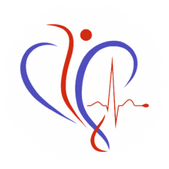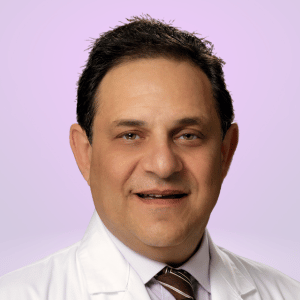Skip The Waiting Room!
Book Online Before You Arrive.
We have up to date schedules, contact information, & let you book appointments online.
Understanding Heart Health
The heart is at the core of your well-being, pumping blood, nutrients, and oxygen throughout your body. When heart health is compromised, timely intervention is essential to prevent life-threatening complications.
At Champion Health System, we are dedicated to providing comprehensive, cutting-edge heart-related procedures to ensure our patients receive the best care possible.
Why Choose Champion Health System for Heart Care?
- Advanced Technology: We utilize state-of-the-art diagnostic and treatment tools to provide the best outcomes.
- Experienced Team: Our cardiologists and surgeons are leaders in their field with decades of expertise.
- Patient-Centered Approach: Every treatment plan is tailored to your unique needs and preferences.
- Comprehensive Care: From diagnostics to advanced procedures, we provide seamless care under one roof.
Common Heart Conditions We Treat
- Coronary Artery Disease (CAD): Narrowed arteries due to plaque buildup that reduce blood flow to the heart.
- Arrhythmias: Irregular heartbeats such as atrial fibrillation or tachycardia.
- Heart Valve Disorders: Issues with one or more valves, including stenosis or regurgitation.
- Congestive Heart Failure (CHF): A condition where the heart doesn’t pump blood as efficiently as it should.
- Peripheral Artery Disease (PAD): Restricted blood flow in the arteries outside the heart, often affecting the legs.
- Congenital Heart Defects: Structural problems in the heart present since birth.
Heart-Related Procedures Offered
1. Angioplasty and Stenting
- What It Is: A minimally invasive procedure to open clogged arteries and improve blood flow.
- How It Works: A small balloon is inserted and inflated, often followed by stent placement to keep the artery open.
- Benefits: Quick recovery, reduces chest pain, and prevents heart attacks.
2. Coronary Artery Bypass Grafting (CABG)
- What It Is: A surgical procedure that redirects blood around blocked arteries to improve blood flow.
- How It Works: Healthy blood vessels from other parts of the body are grafted to bypass the blockages.
- Benefits: Improves quality of life and longevity for patients with severe blockages.
3. Pacemaker and Defibrillator Implantation
- What It Is: Devices implanted to regulate or restore normal heart rhythms.
- How It Works: Pacemakers address slow heartbeats, while defibrillators correct life-threatening arrhythmias.
- Benefits: Prevents sudden cardiac arrest and improves overall heart rhythm.
4. Heart Valve Repair or Replacement
- What It Is: A procedure to repair or replace damaged heart valves.
- How It Works: Minimally invasive techniques or open-heart surgery are used, depending on the condition.
- Benefits: Restores efficient blood flow and reduces symptoms like fatigue and breathlessness.
5. Cardiac Catheterization
- What It Is: A diagnostic and treatment procedure to assess heart function and blood flow.
- How It Works: A catheter is inserted into a blood vessel to access the heart and perform necessary interventions.
- Benefits: Accurate diagnosis and immediate treatment for certain heart conditions.
6. Electrophysiology Studies (EPS)
- What It Is: A detailed examination of the heart’s electrical system to diagnose arrhythmias.
- How It Works: Catheters and electrodes are used to map the heart’s electrical activity.
- Benefits: Identifies arrhythmias and helps determine effective treatments.
7. Advanced Heart Imaging
- What It Is: Non-invasive imaging techniques like echocardiograms, CT scans, and MRIs.
- How It Works: Provides detailed visuals of the heart’s structure and function.
- Benefits: Early and accurate diagnosis of heart conditions.
Comprehensive Aftercare Services
- Cardiac Rehabilitation Programs: A structured approach to improve heart health post-treatment.
- Lifestyle Counseling: Guidance on diet, exercise, and stress management to prevent recurrence.
- Ongoing Monitoring: Regular check-ups and remote monitoring for long-term care.
Symptoms like chest pain, shortness of breath, fainting, or palpitations should prompt a medical evaluation.
Yes, most minimally invasive procedures have high success rates and shorter recovery times compared to open surgery.
Recovery varies by procedure. Minimally invasive treatments typically require a few days, while surgeries like CABG may take weeks.
Most heart procedures are covered by insurance, but coverage varies. Our team can assist you with insurance verification and claims.
Preparation may include fasting, stopping certain medications, and arranging post-procedure care. Detailed instructions will be provided during your consultation.
Adopting a healthy diet, exercising regularly, quitting smoking, and managing stress are key to improving heart health.
Here are industry experts who can help you
Radhakrishnan Ramaraj, MD FSCAI
President, Board Certified Interventional Cardiologist Vascular Medicine & Endovascular Interventions
Eric Lo, MD
Board Certified Interventional Cardiologist Peripheral Intervention & Structural Cardiologist
Need some advice from our experts?
Request a Call Back Today Now!
We will make a single attempt to contact you from a withheld number, usually within 24 hours of your request.











